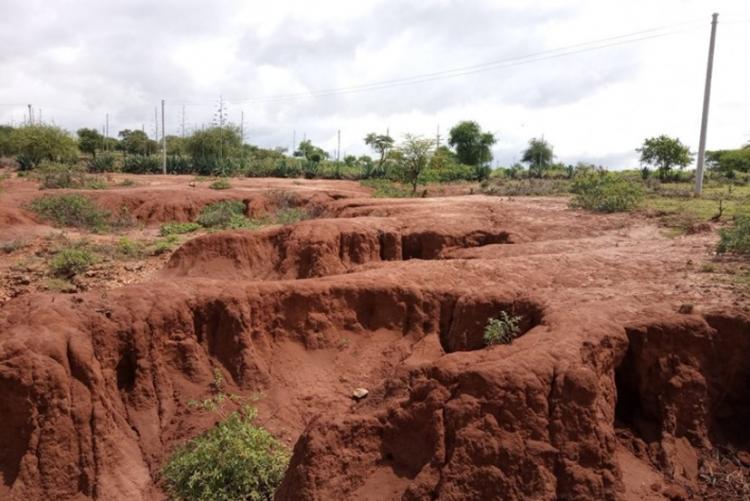The gully rehabilitation activity was part of the Drylands Transform “Pathways and challenges toward a socio-ecological transformation of landscapes, livestock and livelihoods in the East African drylands”, which is a multidisciplinary research project (2020 – 2024) led by the Swedish University of Agricultural Sciences (SLU). The Drylands Transform is being implemented by a multidisciplinary research team from Intergovernmental Authority on Development, IGAD, Linnaeus University, Makerere University, University of Nairobi, Swedish University of Agricultural Sciences (SLU), Umeå University, University of Gothenburg, and World Agroforestry (ICRAF). The geographical focus of Drylands Transform is the cross-boundary area between Kenya and Uganda, part of the Karamoja cluster.
The project aims to investigate the links between land health, livestock-based livelihoods, human well-being, and land management and governance. We will contribute with new knowledge for transformative change and sustainable development of rangelands in the drylands of East Africa.
Soil erosion is one of the most devastating environmental disasters for most developing countries as it results in the loss of huge amounts of valuable soil which is key to agricultural production. The aim of objective two in the Drylands Transform project is to co-develop sustainable rangeland restoration and management options with the local communities and other stakeholders. Management methods could be expensive and sometimes less effective. The use of Vetiver grass (Chrysopogon zizanioides) has been regarded as an inexpensive and eco-friendly tool to combat soil erosion and for water conservation; when compared with other soil conservation technologies. Vetiver is a tall, tufted, perennial, scented grass with a straight stem, long narrow leaves and a root system that is abundant, complex and extensive. Vetiver grass technology was applied at the Livestock Café site in Chepareria ward. The site is highly degraded with huge gullies occupying more than 50% of the site. Vetiver grass technology was initiated as a tool to rehabilitate the severely gullied part of the Livestock Café site in Chepukat village, Chepareria ward in West Pokot County, to showcase it as a possible solution to the severely degraded hotspots in West Pokot County.
Fig. 1: A group of women planting the Vetiver grass splits in soil bags (Photo by M Nyaga).
Fig 2: Vetiver splits planted directly without the bags at the base of the gullies (Photo by M Nyaga).
Fig 3: Vetiver splits planted at the gully mouth at the Livestock Café
Some of the project personnel and consultants involved were:
|
Project personnel and consultants |
|
|
Researcher, University of Nairobi |
|
|
|
PhD Student, University of Nairobi |
|
Vetiver Trainer/Consultant, Jjaja Regeneration |
|
Vetiver demo’s, Jjaja Regeneration |
|
Agricultural and Livestock Officers, Ministry of Agriculture, Livestock and Fisheries, Chepareria Office |
|
|
|
|
- Log in to post comments

